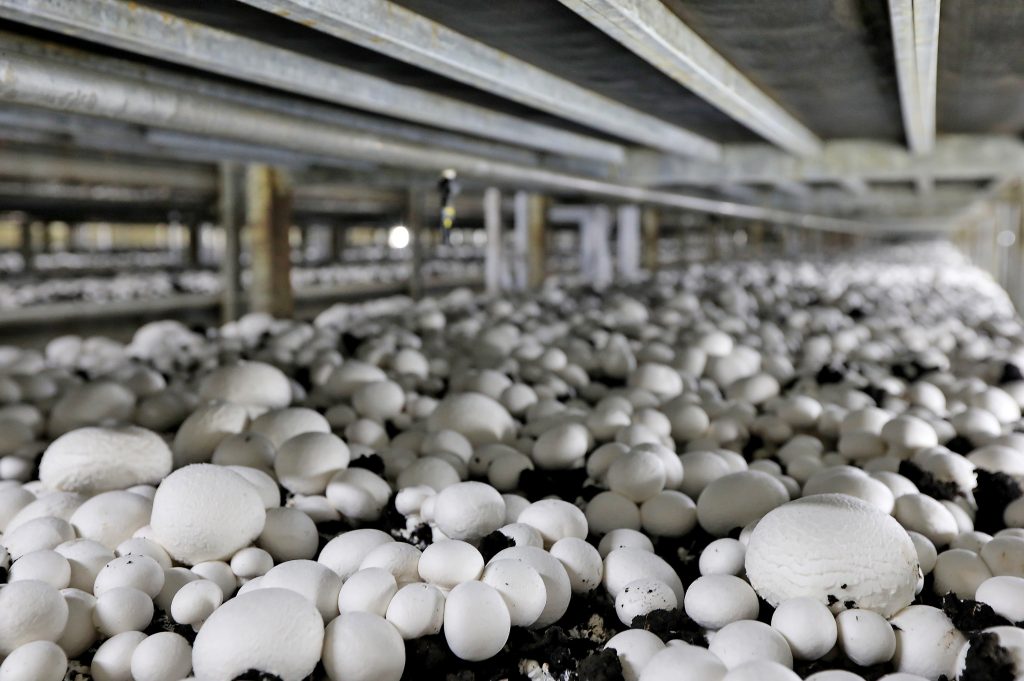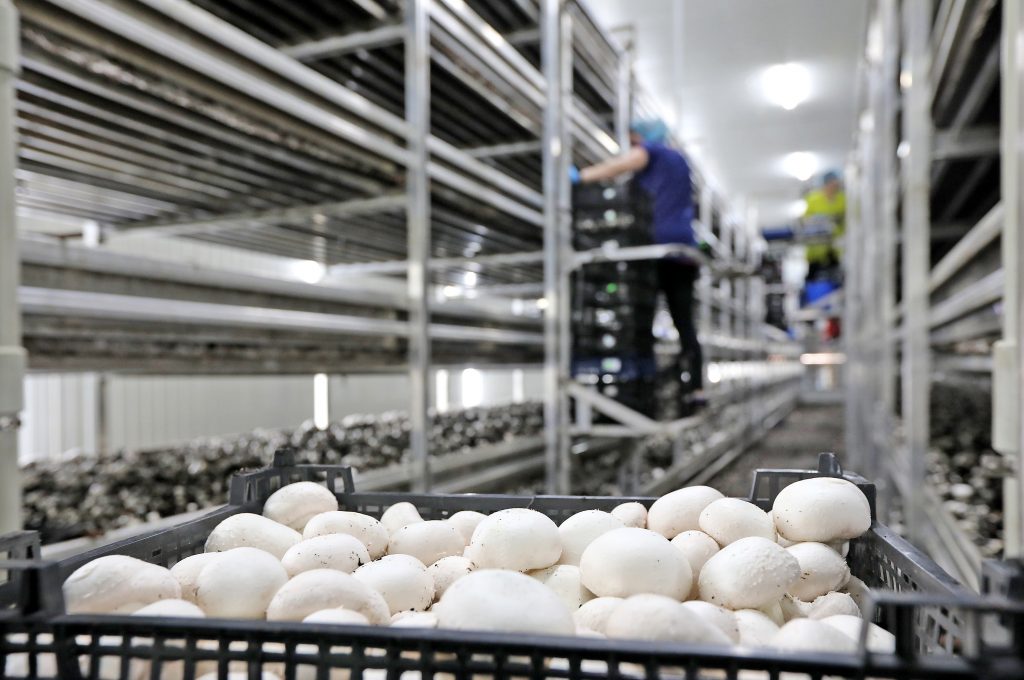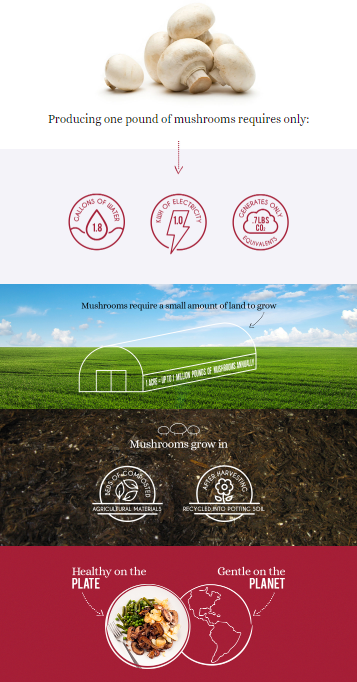Today is Day of the Mushroom, which is confused frequently with National Mushroom Day (which occurs in October). This day, begun by the Mushroom Council drives awareness to the fungi, and encourages people to incorporate mushrooms into their diet. Mushrooms have a number of benefits, from eliminating free radicals to improving heart health. Mushrooms recently have come into the spotlight for other health benefits, like being apoptogenic and reducing stress and anxiety. And while the history of mushrooms is fascinating, and the benefits and varieties are almost endless, our eco-conscious side was most intrigued by the sustainability of mushrooms. Because one of the less publicized aspects of mushrooms is that they are considered to be one of the most sustainably produced foods in the United States.

In 2017, the Mushroom Council conducted a two-year study to evaluate the environmental footprint of mushroom production, and the potential impacts of climate change of mushroom production from CO2 emissions. The results of the study were quite stunning. Producing one pound of mushrooms requires only 1.8 gallons of water, one kilowatt of electricity, and generates only .7 lbs. of CO2 equivalents. If you compare that to the production of an avocado, which needs 74.1 gallons of water, and makes 846lbs of Co2 (we could not find statistics on the electric usage of avocados, though based on these figures we can assume its higher than a mushroom).

Mushrooms also require a small amount of land to grow. One acre of mushroom crop can produce up to one million pounds annually of the crop. The avocado can only produce 20,000 pounds of crop per acre. Considering mushrooms, regardless of variety, weigh considerably less than an avocado, the yield comparisons are stark.

Finally, mushrooms do best in fully composted materials while they are growing, and after harvesting they are recycled into potting soil. Compared to avocados who have fueled rapid deforestation in Mexico and other regions to fuel demand, the mushroom has a much smaller impact.
The Mushroom Council also made a very informative infographic, which illustrates their findings:

Regardless of how you like to enjoy mushrooms, it’s comforting to know that the environmental impact of mushrooms is very low!
And if you’re looking to try a recipe with mushrooms, we suggest you try this Taco Lasagna from Bake and Destroy. We’ve shared it a few times (because, let’s be honest, it’s delicious) but the mushrooms in the recipe truly bring out that umami flavor!

 Food
Food Farmers
Farmers Sustainable Living
Sustainable Living Living Planet
Living Planet News
News